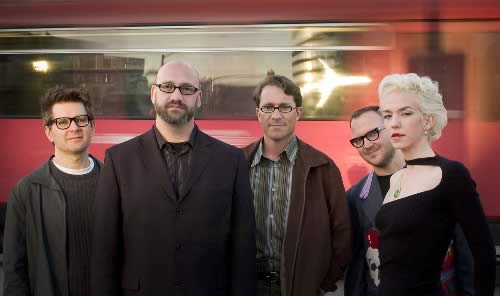In the Issues & Ideas section of today’s National Post, you’ll find Adam Radwanski’s op-ed piece titled Divided They Blog [paid registration required].
Here’s an excerpt:
Last week, a contributor to a popular Canadian weblog posted a blistering attack on Islam. Under the heading “Islam Must Be Stopped“, someone called “Right Girl” weighed in on “the devil that they call Allah”, labelled Islam “a death cult” and called for the entire religion to be banned in Canada.
If Right Girl has stood on a street corner calling for Islam to be banned, passers-by would either have shouted here down or dismissed her as a kook. Any newspaper that publsihed her views would have been deluged with disgusted letters to the editor. But in this forum, the comments that followed her post lauded her for taking such a brave stand — and in some cases, went even further in their attacks on Muslims.
The blog in question was The Shotgun, found on the Western Standard’s Web site. But the issue wasn’t the conservative magazine, which of course can’t be held responsible for the messages that wing nuts post on its blog. The issue was the broader blog medium that’s having a nasty effect on public discourse.
Radwanski’s article looks at the increasing polarization of the blogosphere, a phenomenon that didn’t truly get its start until after the September 11th attacks. The combination of the attacks and the hotly-contested U.S. presidential elections months before have certainly stoked the political fires on both sides, and technical factors such as the rise of blogs, the drop in computer prices and the increasing availability of broadband internet over wires or WiFi, has lowered the barrier to entry for anyone to make his or her opinions heard.
This combination of increased poltical ire and cheap and ubiquitious tech has had an effect on discourse. There’s a natural tendency for people to gravitate to others who reinforce their own beliefs and ideas. That in itself isn’t a bad thing — that’s how communities get formed — but there’s a tendency to form what bloggers sometimes refer to as “echo chambers”. “Both sides would have you believe that they’re engaged in a righteous war with one another for the soul of America,” writes Radwanski, “But because they never actually engage each other, it’s not a war at all — it’s just two sides endlessly rallying the troops”.
That certainly holds true for the local blogosphere. I’ve attended a number of gatherings of political bloggers where the lean was either clearly left or right; it’s very rare that people from either group ever mingle. In fact, a good number of bloggers on each side have never heard of the more popular blogs on the other side. They might as well be speaking different languages.
I do make an effort to go and attend gatherings of bloggers with whom I don’t agree. I even maintain cordial relations with people with whom I’ve sparred online, which is easier than one might think. It’s one thing to flame someone with a blog entry or in a comment; it’s another thing to do so face-to-face.
As for RightGirl, Wendy and I have met her. If the topic of politics were guaranteed to never come up, I doubt that Wendy would object to having brunch with her sometime. That’s less likely in light of some of the noxious things RightGirl wrote, but I hold out hope that someday such a gathering will be possible. I am mindful of the fact that people tend to be a little more strident when writing, and that judging her solely on her recent articles about Islam reduces her to a one-dimensional cipher. Yes, what she wrote was in my opinion hateful, wrongheaded and downright ignorant. But if we close the door on dialogue — remember, we’re only pointing blogs at each other, not bullets or rockets — what hope is there for the people actually aiming lethal weapons at each other?
Here’s the closing paragraph of Radwanski’s article:
True, we don’t yet have entire TV programs devoted to advancing an ideology [if some of the shows on FOX News don’t already do so, they come pretty close — Joey]. But with commentators increasingly emulating the zealous partisanship of the online crowd in the hope of eliciting similarly strong reactions, it might not be long. It’s a trend that should remind us to hold ourselves to a higher standard, to seek out dissenting views and think critically about the perspectives being sold to us — because the last thing we need is a nation of Right Girls and their sycophants.
I would say: Right Girl, si, some of Right Girl’s vitriol, no.





